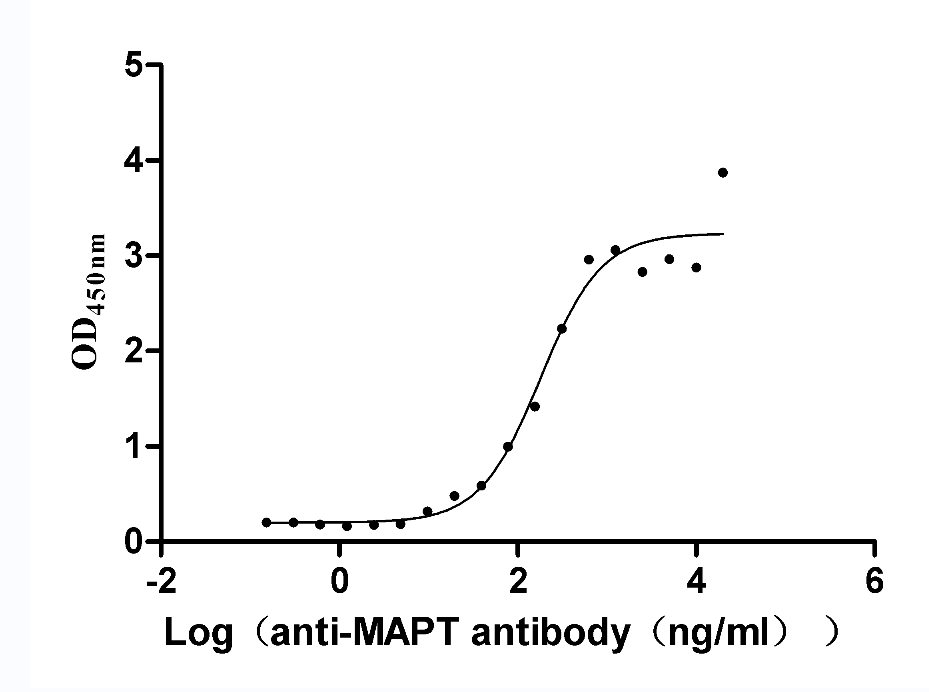Recombinant Escherichia coli Uncharacterized protein yieF (yieF)
-
中文名稱:Recombinant Escherichia coli Uncharacterized protein yieF(yieF),Yeast
-
貨號(hào):CSB-YP314185ENV
-
規(guī)格:
-
來(lái)源:Yeast
-
其他:
-
中文名稱:Recombinant Escherichia coli Uncharacterized protein yieF(yieF),Yeast
-
貨號(hào):CSB-EP314185ENV
-
規(guī)格:
-
來(lái)源:E.coli
-
其他:
-
中文名稱:Recombinant Escherichia coli Uncharacterized protein yieF(yieF),Yeast
-
貨號(hào):CSB-EP314185ENV-B
-
規(guī)格:
-
來(lái)源:E.coli
-
共軛:Avi-tag Biotinylated
E. coli biotin ligase (BirA) is highly specific in covalently attaching biotin to the 15 amino acid AviTag peptide. This recombinant protein was biotinylated in vivo by AviTag-BirA technology, which method is BriA catalyzes amide linkage between the biotin and the specific lysine of the AviTag.
-
其他:
-
中文名稱:Recombinant Escherichia coli Uncharacterized protein yieF(yieF),Yeast
-
貨號(hào):CSB-BP314185ENV
-
規(guī)格:
-
來(lái)源:Baculovirus
-
其他:
-
中文名稱:Recombinant Escherichia coli Uncharacterized protein yieF(yieF),Yeast
-
貨號(hào):CSB-MP314185ENV
-
規(guī)格:
-
來(lái)源:Mammalian cell
-
其他:
產(chǎn)品詳情
-
純度:>85% (SDS-PAGE)
-
基因名:chrR
-
Uniprot No.:
-
別名:chrR; yieF; b3713; JW3691; Quinone reductase; EC 1.6.5.2; Chromate reductase; CHRR; EC 1.6.-.-; NAD(P)H dehydrogenase; quinone)
-
種屬:Escherichia coli (strain K12)
-
蛋白長(zhǎng)度:full length protein
-
表達(dá)區(qū)域:1-188
-
氨基酸序列MSEKLQVVTL LGSLRKGSFN GMVARTLPKI APASMEVNAL PSIADIPLYD ADVQQEEGFP ATVEALAEQI RQADGVVIVT PEYNYSVPGG LKNAIDWLSR LPDQPLAGKP VLIQTSSMGV IGGARCQYHL RQILVFLDAM VMNKPEFMGG VIQNKVDPQT GEVIDQGTLD HLTGQLTAFG EFIQRVKI
-
蛋白標(biāo)簽:Tag?type?will?be?determined?during?the?manufacturing?process.
The tag type will be determined during production process. If you have specified tag type, please tell us and we will develop the specified tag preferentially. -
產(chǎn)品提供形式:Lyophilized powder
Note: We will preferentially ship the format that we have in stock, however, if you have any special requirement for the format, please remark your requirement when placing the order, we will prepare according to your demand. -
復(fù)溶:We recommend that this vial be briefly centrifuged prior to opening to bring the contents to the bottom. Please reconstitute protein in deionized sterile water to a concentration of 0.1-1.0 mg/mL.We recommend to add 5-50% of glycerol (final concentration) and aliquot for long-term storage at -20℃/-80℃. Our default final concentration of glycerol is 50%. Customers could use it as reference.
-
儲(chǔ)存條件:Store at -20°C/-80°C upon receipt, aliquoting is necessary for mutiple use. Avoid repeated freeze-thaw cycles.
-
保質(zhì)期:The shelf life is related to many factors, storage state, buffer ingredients, storage temperature and the stability of the protein itself.
Generally, the shelf life of liquid form is 6 months at -20°C/-80°C. The shelf life of lyophilized form is 12 months at -20°C/-80°C. -
貨期:Delivery time may differ from different purchasing way or location, please kindly consult your local distributors for specific delivery time.Note: All of our proteins are default shipped with normal blue ice packs, if you request to ship with dry ice, please communicate with us in advance and extra fees will be charged.
-
注意事項(xiàng):Repeated freezing and thawing is not recommended. Store working aliquots at 4°C for up to one week.
-
Datasheet :Please contact us to get it.
靶點(diǎn)詳情
-
功能:Catalyzes the reduction of quinones. Acts by simultaneous two-electron transfer, avoiding formation of highly reactive semiquinone intermediates and producing quinols that promote tolerance of H(2)O(2). Quinone reduction is probably the primary biological role of ChrR. Can also reduce toxic chromate to insoluble and less toxic Cr(3+). Catalyzes the transfer of three electrons to Cr(6+) producing Cr(3+) and one electron to molecular oxygen without producing the toxic Cr(5+) species and only producing a minimal amount of reactive oxygen species (ROS). Chromate reduction protects the cell against chromate toxicity, but is likely a secondary activity. Can also reduce potassium ferricyanide, 2,6-dichloroindophenol, V(5+), Mo(6+), methylene blue, cytochrome c and U(6+). During chromate reduction, is able to use both NAD or NADP equally well.
-
蛋白家族:SsuE family
-
數(shù)據(jù)庫(kù)鏈接:
KEGG: ecj:JW3691
STRING: 316385.ECDH10B_3900
Most popular with customers
-
Recombinant Human Angiopoietin-2 (ANGPT2) (Active)
Express system: Mammalian cell
Species: Homo sapiens (Human)
-
Recombinant Rat Microtubule-associated protein tau (Mapt) (Active)
Express system: Mammalian cell
Species: Rattus norvegicus (Rat)
-
Recombinant Human Desmoglein-3 (DSG3), partial (Active)
Express system: Baculovirus
Species: Homo sapiens (Human)
-
Recombinant Macaca fascicularis lymphocyte antigen 6 family member G6D (LY6G6D) (Active)
Express system: Yeast
Species: Macaca fascicularis (Crab-eating macaque) (Cynomolgus monkey)
-
Recombinant Human C-C chemokine receptor type 8 (CCR8)-VLPs (Active)
Express system: Mammalian cell
Species: Homo sapiens (Human)
-
Recombinant Human Interleukin-12 receptor subunit beta-1(IL12RB1),partial (Active)
Express system: Mammalian cell
Species: Homo sapiens (Human)


-AC1.jpg)













